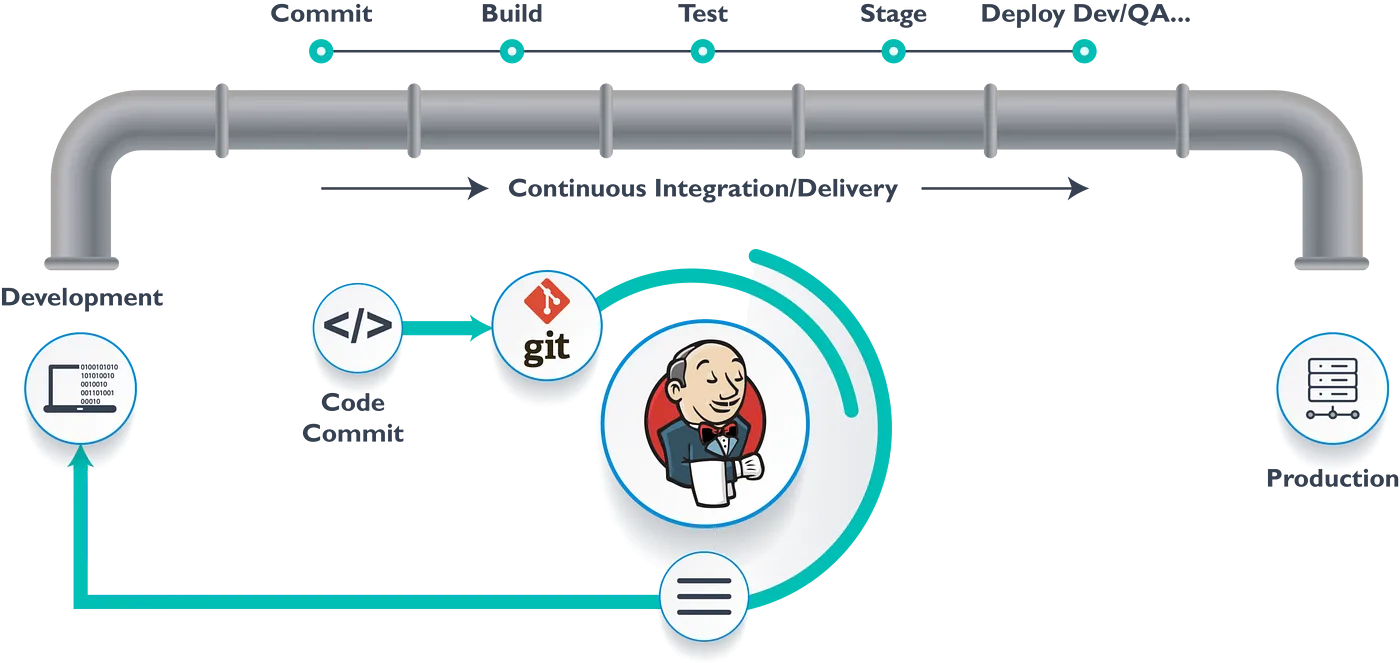CI/CD Products and Solutions

- TravisCI
- CircleCI
- CodeFresh
- Codeship
- Shippable
- Wercker
- Azure DevOps
- AWS DevOps
- GitLab CI
Introduction
Continuous Integration (CI) is a popular practice in software development that involves frequent and automated testing of code changes. It helps developers to identify and fix issues early, leading to faster and more reliable software delivery. There are many CI products and solutions available in the market, each with its own set of features and benefits. In this blog post, we will discuss three of the most popular CI products and solutions.

Jenkins
Jenkins is a well-known open-source CI tool that has been around for over a decade. It offers a wide range of plugins and integrations with other tools, making it a versatile choice for many development teams. Jenkins supports a variety of operating systems, programming languages, and version control systems. It also provides a web-based interface for easy configuration and management of jobs. Jenkins is highly customizable, which allows developers to tailor it to their specific needs.
Travis CI
Travis CI is a cloud-based CI service that is widely used in open-source projects. It provides a simple and easy-to-use interface for setting up CI pipelines. Travis CI supports a variety of programming languages and frameworks, including Ruby, Python, JavaScript, and Go. It also integrates with GitHub, making it easy for developers to trigger builds on code changes. Travis CI offers both free and paid plans, with the latter providing additional features such as parallel builds and custom build environments.
CircleCI
CircleCI is another cloud-based CI service that offers a highly scalable and customizable platform for continuous integration and delivery. It supports a wide range of programming languages, frameworks, and tools, including Docker, Kubernetes, and AWS. CircleCI provides a simple yet powerful YAML configuration file for defining CI pipelines, making it easy to manage complex workflows. It also offers a range of features such as parallelism, artifact caching, and automatic test splitting.
Conclusion
In conclusion, choosing the right CI product or solution depends on various factors such as the size of the development team, the complexity of the project, and the budget. Jenkins, Travis CI, and CircleCI are three of the most popular CI tools available in the market, each with its own set of strengths and weaknesses. It is important for developers to evaluate their requirements and choose a CI tool that best fits their needs. Continuous integration plays a crucial role in ensuring software quality and faster delivery, and choosing the right CI tool can make a significant difference in achieving these goals.
Reference
- Jenkins.
https://jenkins.io/ - Travis CI.
https://travis-ci.org/ - CircleCI.
https://circleci.com/ - Jenkins vs. Travis CI vs. CircleCI.
https://medium.com/hackernoon/continuous-integration-circleci-vs-travis-ci-vs-jenkins-41a1c2bd95f5